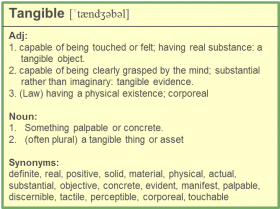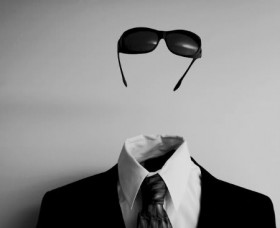
On my holidays I always try to include some extra time to read and I actually read two books this Christmas, “Too much happiness” by the excellent Alice Munroe, and a very good book by Neela Bettridge & Philip Whiteley, “New Normal, Radical shift” about leadership in a Sustainable Future.
… don’t know if this combination of books tell anything about me, but a humanistic Nobel Laureate and a very up-to-date book on leadership was a very good combination, and “food” for many thoughts…
I don’t know if it was Taylor, Keynes, Friedman et al. that “invented” the viewpoint on fellow human beings as “resources” and I don’t know what kind of “time-sprit” or maybe “elitist” mind-set triggered such an idea – but what is really fascinating is when you mix this viewpoint with more recent “inventions” such as Corporate Social Responsibility (CSR) …
Some reflections…
The Corporate “Machine”…
At some point someone (could have been Taylor) came up with the idea that a corporation is like a machine, “any machine”, and then there is this small group of executives sitting in a room filled with levers and knobs controlling that the machine is running to fulfil their needs – and like most machines it needs some supplies to function, commodities like energy, humans and raw materials…
[ hmm…]
 … last time I heard about humans considered as a commodity it was called “trafficking” or “slave-trade” – I am not saying that this is the same, but exchanging “human beings” with “human resources”, regardless if it is a thousand kilometres away or in the close vicinity, and regardless if it is only “a figure of speech”, gives me a feeling of “distance”, “arrogance” and “disparagement”…
… last time I heard about humans considered as a commodity it was called “trafficking” or “slave-trade” – I am not saying that this is the same, but exchanging “human beings” with “human resources”, regardless if it is a thousand kilometres away or in the close vicinity, and regardless if it is only “a figure of speech”, gives me a feeling of “distance”, “arrogance” and “disparagement”…
To quote from ‘New Normal, Radical shift’
“…People became ‘human resources’, and their motivations divorced from strategic consideration, placed in a separate category, hived off to the HR department and consigned to a single patronizing paragraph in the annual report about ‘the most important asset’, without acknowledgement of the fact that this precious asset also happens to generate all the others…”
The Corporate “Discharge” from Society…
Once you have divorced people’s attachment and motivation from the “Corporate Machine” and placed them in a separate category I suppose Keynes and Friedman found it quite “simple” to come to the conclusion that what’s left is nothing more than an “empty shell” a set of rules, organisation-charts and some inventories, and as such it cannot hold any emotions or any responsibilities…
’Only “people” have responsibilities…“Business” as a whole cannot be said to have responsibilities, even in this vague sense’…
Milton Friedman, Article in New York Times, 1970
This convoluted sentence assumes that business does not consist of people – and this is coming from one of the most influential persons within the “Chicago-school”…
Maybe they should have delved a little longer on the implications of such an approach – if you should consider such “behaviour” from a person, most likely he/she would be characterized as antisocial or even as a Psychopath or Sociopath – check some of the factors in the Hare Psychopathy Checklist (PCL-R) originally developed in the 1970s on this page from Wikipedia – but then of course they had already divorced the connection to people…
…I wonder what Business would have been like today if a wide discussion on these matters had been carried out back then…
One thing I cannot really understand though is that owners and executives of a “Corporate Machine” (the people in the room with levers and knobs) somehow also are “excluded” from moral and ethical responsibility…
The Corporate language issue…
Have you ever come across a politician using “difficult words, or for that matter a Rap-artist using a jargon that you are not familiar with – well, the corporate jargon is “accountancy”…
Using “accountancy” as your preferred language effectively excludes the vast majority of people on this planet, I don’t know if that ever was a “preferred scenario” but again, since people anyway have been divorced from the “Corporate machine”…
 “Inversion of reality”
“Inversion of reality”
Sometimes it is amazing when you hear executives refer to the Real People you actually work with as ‘intangible’ and at the same time pretend that the arbitrary estimations of book value in the accounts are ‘tangible’…
…amazing how things that is real and “touchable” can become “an identifiable non-monetary asset without physical substance” – it’s almost like “fiction”.
 …I have friends working as accountants and, although they would never admit to it publicly – after a couple of beers they have told me that constantly working with “accountancy” as their business language has an effect on how you regard and value things, which is no surprise.
…I have friends working as accountants and, although they would never admit to it publicly – after a couple of beers they have told me that constantly working with “accountancy” as their business language has an effect on how you regard and value things, which is no surprise.
– Elisabeth and Johan: if you read this and at any time regard me as “intangible”, just stop by and I’ll give you a friendly hug or a kick on the shin, to get you back in the Real world again…
I wonder which “language” Gordon Gekko used (Link to article), and I also wonder which “language” is best suited to tell “fairy-tales” (Link to article)…
The Human factor
Quite often when reading about Business events that don’t turn out exactly as “intended”, it could be a company merger not paying off or not giving the synergies referred to, a process not being as “efficient” as intended or profitability not reaching the anticipated level – the “Human Factor” is used as a Scapegoat.
 How can this be – have we come to a point where in theory, Human resources, although “divorced from the Corporate Machine” still are regarded as a Liability and a Risk and should therefore be “avoided” in the system altogether – while in reality Human beings is the “main” reason and the most important stakeholder for any business to exist…
How can this be – have we come to a point where in theory, Human resources, although “divorced from the Corporate Machine” still are regarded as a Liability and a Risk and should therefore be “avoided” in the system altogether – while in reality Human beings is the “main” reason and the most important stakeholder for any business to exist…
… somehow it resembles the way Business economics try to distance itself from Real economics to avoid the “risk” that resources and growth might not be Infinite…
I can’t help pondering what came first – did People really invent business to solve some tasks in our society or did the Banks invent business as a way to get return on their investments… what was really the purpose, what has happened since and how did the Human factor become a liability?
The Corporate Frameworks, Organization, Job descriptions…
Many managers and executives shrug their shoulders when faced with the description of a corporation as “a Machine” often arguing that their “well set-up” organization indeed also have a “HR-department” handling the “human part” of their operation.
 Then they start to develop, often rigid and detailed job descriptions, detailed organizations charts, systematic work-flows etc. not seldom based on a pre-defined economical reporting structure. Next step is then to outsource the task of occupying these structures with people to the Human Resources department, sometimes this is even outside the company… trying to mold perfectly matched “machine-parts”…
Then they start to develop, often rigid and detailed job descriptions, detailed organizations charts, systematic work-flows etc. not seldom based on a pre-defined economical reporting structure. Next step is then to outsource the task of occupying these structures with people to the Human Resources department, sometimes this is even outside the company… trying to mold perfectly matched “machine-parts”…
…and if it doesn’t work out as intended or doesn’t create high-enough profits, you could always re-organize – handling resources is always simpler than handling people… and far less personal…
Parallel to this, in the real world, the strive for individual development, individual success, lifestyles, careers etc have never been stronger and recent research show that 65% of people are unhappy at work, only 14% understand their company’s strategy and many do not recognize the behaviours described in their company’s values…
Furthermore, when asked what people want; Meaningful/Important work, Responsibility, Autonomy, Challenge, Teamwork and Recognition are always included among the top answers – read more in this previous article (Link)
“The value added by engagement and skill of employees nearly always vastly outweighs the direct costs of hire”
Quote from “New Normal, Radical Shift”
…but if this is going to happen we need to invite and engage in people and involve people as Human Beings and Stakeholders, not as a Commodity or a Resource…
The Corporate Social Responsibility…
…now I get it – that’s why it is so hard to get Corporations to comply (Link) with Sustainability and Social Responsibility – They have all been reading Friedman’s 1970s article in the New York Times, quoted above – but don’t they know that you shouldn’t trust everything in the newspapers…
 When we want corporations to take Social Responsibility maybe we first need to remove the anachronistic and flawed idea that business don’t have responsibilities and to realize that every corporation on this planet is totally dependent on people – take out the people and you can really talk about “intangible assets” with no value…
When we want corporations to take Social Responsibility maybe we first need to remove the anachronistic and flawed idea that business don’t have responsibilities and to realize that every corporation on this planet is totally dependent on people – take out the people and you can really talk about “intangible assets” with no value…
… the very idea that a company should not be responsible to society for its actions, and instead try to cheat and seek every possibility to dodge from responsibility – it’s unbelievable…
Jeffrey Pfeffer, Professor of Organizational Behaviour at Stanford University, commented already at the end of the 1990s on the “very strange phenomenon of business theory moving in an opposite direction to the evidence base…” in his book “The Human Equation”.
(Jeffery Pfeffer Homepage Link)
Reality is that Business is a very significant part of our society, business was created to solve some of our societal needs, but somewhere along the line bad theory has led to bad practice based on conceptual errors.

Regardless if you are a Person or a Corporation – If you want to be part of Society and use the advantages that comes from being part of it you have to play according to Society rules, not according to some own set of rules, or some 30 years old and flawed theories – this has nothing to do with socialism or any other political standpoint, it is Common Sense!
And let’s be absolutely clear, every corporation is originally created on the purpose to fulfil some need in our society, otherwise there would be no – “raison d’être” – reason for them to exist.
The best organizations and corporations in our Society realized, long time ago that skilled, engaged and dedicated people is the Keyword to success, not “Human Resources“, and that they are responsible to society for their actions, regardless if it’s required by law or not.
But still there are a lot of owners and executives sitting in rooms (with knobs and levers) believing that they are in control of how their corporation is running – there “could be” a risk that these rooms are placed in the basement with no windows to the real world…